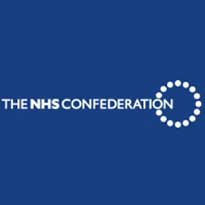NHS data ‘useful but hard to collect’
- 12 December 2013

Clinicians think that two thirds of data collections in the NHS are useful and relevant to patient care, according to a report by the NHS Confederation.
The ‘Challenging Bureaucracy’ report, which was commissioned by health secretary Jeremy Hunt earlier this year, found that clinicians spend between two and ten hours per week collecting data.
However, administrative staff spend up to 20 hours on the same job, with much of their effort going on finding data for nationally-mandated returns and reports to regulatory bodies.
“Front-line staff perceived that national bodies impose a small burden on them directly. However, the burden on managerial and administrative staff appeared to be substantial; on average they reported that they spend between five and 20 hours a week on nationally required data collection, reporting and validation, says the report.
“The clinical staff we interviewed reported, on average, that 65% of the data they collect is useful and relevant to patient care; this breaks down to 69% for acute providers and 59% for mental health providers.”
The report adds that data collection costs each trust an average of £1.4 million a year, bringing the total yearly cost for the NHS to £300-500 million.
In a foreword, Mike Farrar, chief executive of the NHS Confederation, says the review discovered that the “burden of bureaucracy is much bigger than originally thought.”
The review calls for data collections to be reviewed on a regular basis to judge their relevance, and asks for a core dataset to be developed, which can be used across the health service.
“Developing a core dataset agreed by all national bodies will provide clarity on what needs to be collected to deliver and improve patient care,” says the report.
“This is an important first step to enable the Health and Social Care Information Centre to coordinate and manage duplicative requests for information from different national bodies.”
It adds that several trusts had expressed concerns about inconsistent definitions and recommends that the HSCIC needs to develop a data definition service to “set relevant definitions and content for a national quality dataset.”
The report also calls for the NHS to move towards greater automation of data collections. It argues that trusts with electronic patient record systems spend less time collecting the data, as it can be made part of the process of recording patient information electronically on the system.
The report sets out a total of 30 recommendations for the NHS, the Department of Health and the HSCIC, and concludes that reducing bureaucracy is a “three-part task”.
“We found that reducing unnecessary bureaucracy will require a three-part task to tackle the volume of requests, reduce the effort involved in responding and maximise the value of collected information,” it says.
“This sets a challenge not only to national bodies, but NHS providers themselves to take the lead, where they can, to make sure that information works harder for patients.”
The HSCIC launched a bureaucracy busting campaign, called ‘Let’s Bust Bureaucracy Together’, in October to transform the way the NHS thinks about managing burden and bureaucracy.





